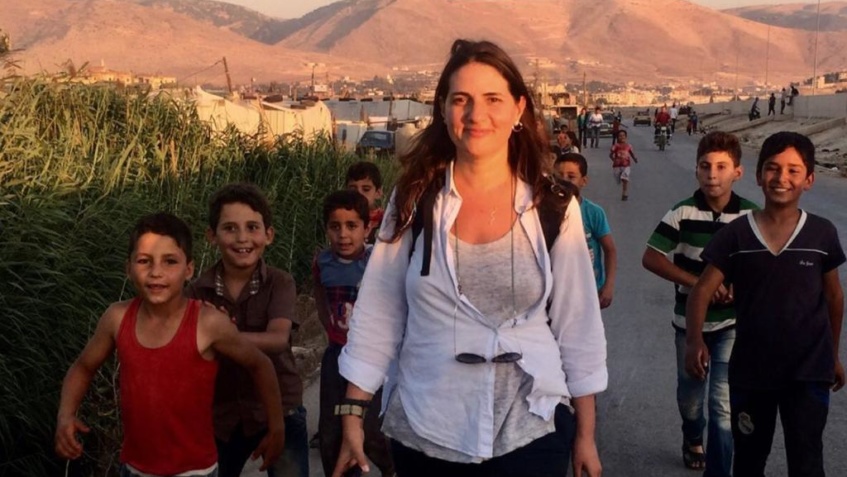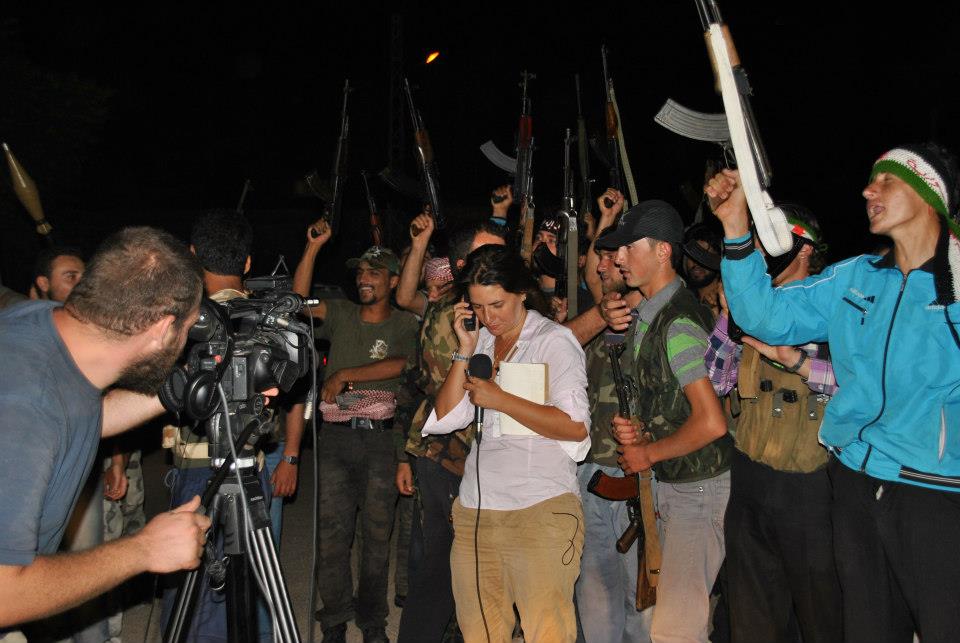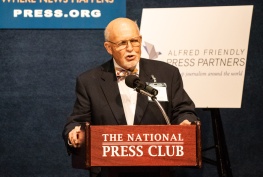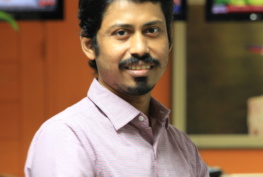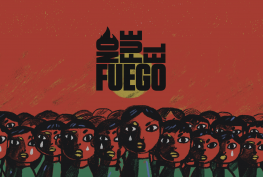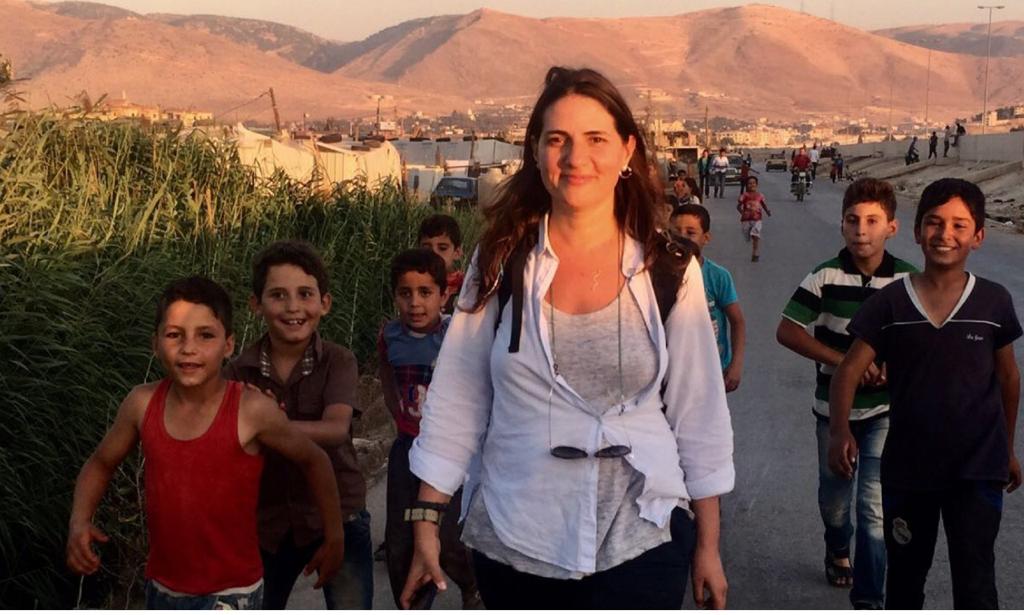
Alia Ibrahim walks with Syrian refugees while on assignment in Bekaa Valley for Al-Arabiya television news
Alia Ibrahim, the co-founder and CEO of a groundbreaking digital media company in Lebanon called Daraj, divides her journalism career in two parts: Before her Alfred Friendly fellowship, and after her fellowship.
Ibrahim’s present-day success was affirmed by the judges of WAN-IFRA’s World News Organization awards. They gave Daraj.com first place in the Best Digital News Startup category in the Middle East in each of the past two years.
At the center of Ibrahim’s career arc is an Alfred Friendly fellowship classmate from 2002 — Marina Walker Guevara, executive editor of the Pulitzer Center. They came together again when Ibrahim was developing the investigative journalism idea that became Daraj and Walker was directing the Paradise Papers project for the International Consortium of Investigative Journalists.
We asked Ibrahim to tell the story in her own words. Here’s what she wrote:
“When I think about the major turning points that have marked my 20 years in journalism, I would first think about the shifts I made from print, to TV and most recently to digital, the move I made from being a senior correspondent at a leading TV station to co-founding and managing an independent media, and my residence at the Washington Post in 2002, thanks to the AFPP.
To put it simply, to me there has always been a before and after the fellowship. The exceptional part, however, is that almost two decades later, I continue to gain from.
As the leader of an emerging media that prides itself on the quality of its journalism produced by a network of some of the best journalists from across the region, I am fully convinced that our future as a media and the future of the countries we live in depends on how well we train our young reporters. When it comes to that, I always find myself drawing lessons from my time with AFPP.
Like many other fellows before me, I have sustained beautiful relationships that have added richness both to my life and to my career.
In 2016, when along with some colleagues I decided to launch Daraj, it was largely out of frustrations. By then, the Arab Spring had turned ugly and working within our media organizations became increasingly difficult. The publication of the Panama Papers, the first collaboration of it’s kind between investigative journalists from across the globe, without us being part of it made us feel how far behind we were. I decided to call an old and dear friend.
Marina Walker, the then deputy director of ICIJ, was a roommate during the time we spent in Washington D.C. I told her I was thinking about starting an initiative with other independent journalists, asked her about her opinion and more importantly whether ICIJ would be willing to work with us. Her answers gave me and my team the encouragement we needed to move forward.
A little over a year later Daraj was born and five days after its launch we were the Arabic Partner on the Paradise Papers.
It’s been a long time since my time at the fellowship, and it’s a completely different world we now live in, but what I believed in then, what I continue to believe in more than anything else is the role of journalism anywhere, anytime.”
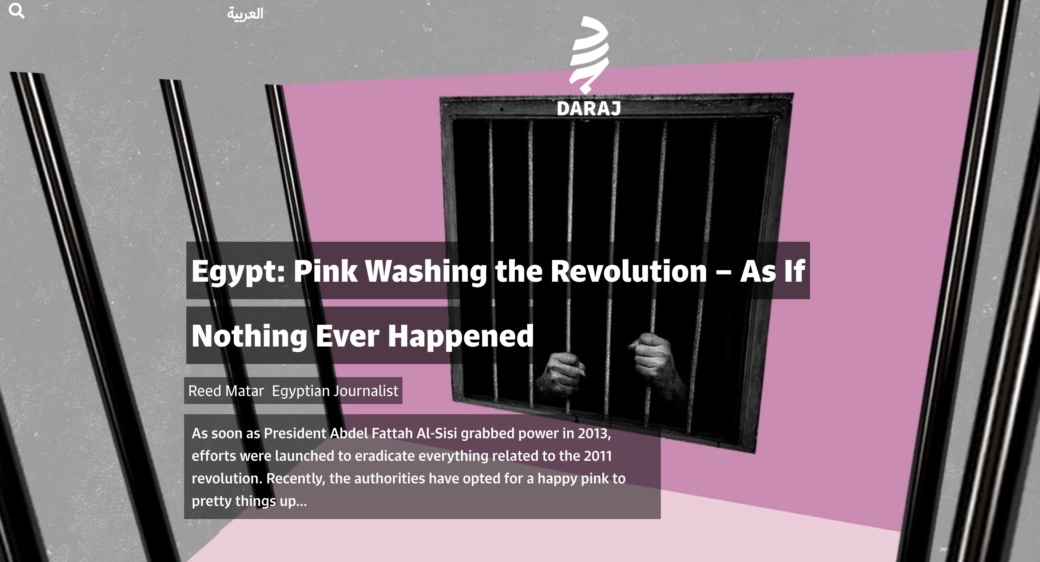 Along with her job at Daraj, Ibrahim directs the investigative Current Affairs program at Al-Arabiya, is a special correspondent for The Washington Post and teaches at The Lebanese American University.
Along with her job at Daraj, Ibrahim directs the investigative Current Affairs program at Al-Arabiya, is a special correspondent for The Washington Post and teaches at The Lebanese American University.
After the successful collaboration of the 2002 Friendly Fellows, here’s what a columnist for The Nation wrote:
“The international collaboration behind the Paradise Papers project has helped spread investigative journalism to such previously inhospitable regions such as the Middle East…A new independent, pan-Arab news site named Daraj launched in November with explosive revelations from the Paradise Papers.”
The Paradise Papers, a global investigation into the offshore activities of some of the world’s most powerful people and companies, won the George Polk Award for Financial Reporting. The Paradise Papers investigation expanded on the revelations from the leak of offshore documents that spawned the 2016 Panama Papers investigation by ICIJ and its media partners, which also won the Polk Award and later won the Pulitzer Prize.

